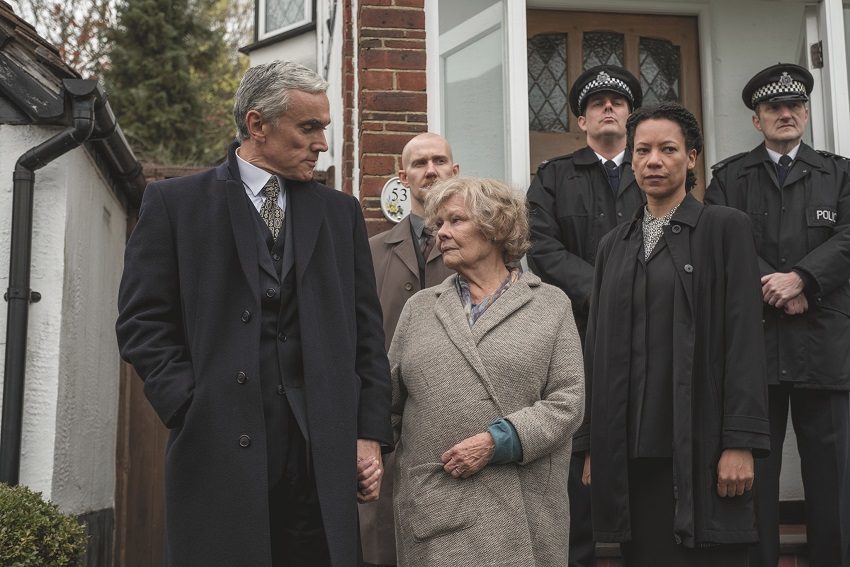Film Review: Red Joan

Drawn from Jennie Rooney’s novel and directed by theatre-intensive type Trevor Nunn, this well-intentioned, oddly anachronistic UK drama features Judi Dench somewhat upstaged by her younger onscreen self.
Although never properly coming together, it still offers some strong period detail, lots of talk (betraying Nunn’s stage background) and good work from Sophie Cookson, who plays the young Dench in flashbacks, even if she doesn’t look at all like her.
Eighty-something Joan Stanley (Dench) is arrested by MI5 while pottering about in her London home back in 2000 and charged with treason due to her supposed involvement in a spy-ring, the details of which have only come to light after the death of one Sir William Mitchell. Dench works hard to make us feel for the scared and bemused senior Joan, although we probably would have anyway, and then the past starts intruding (as it always does) and we’re back in 1938 with Cookson’s young Joan as a bright but naïve physics student at Cambridge University.
After she meets the glamourous and exciting Sonya (Tereza Srbova), she then falls for Leo (Tom Hughes), a German Jew who escaped the Nazis and now makes grandly controversial speeches about the virtues of communism at screenings of Battleship Potemkin. They inevitably get together, even though she’s aware that he might well be using her to gain access to state secrets, and we cut back and forth from the elderly Joan to the youthful Joan, as her story grows more improbable and convoluted throughout the Second World War and into the Cold War.
Desperately trying to score brownie points by comparing the Red-Under-The-Beds business of the past with the paranoid here and now (or at least the year 2000), Nunn’s film is being promoted as a Dench-toplining vehicle, and yet Cookson is really the star here, and easily the best reason to sit through the thing. She also almost succeeds in emulating Dench’s distinctively clipped vocal patterns in order to compensate for her physical dissimilarity but, in the end, no one talks like Judi Dench, comrades.
Red Joan is in cinemas from Thursday, June 6